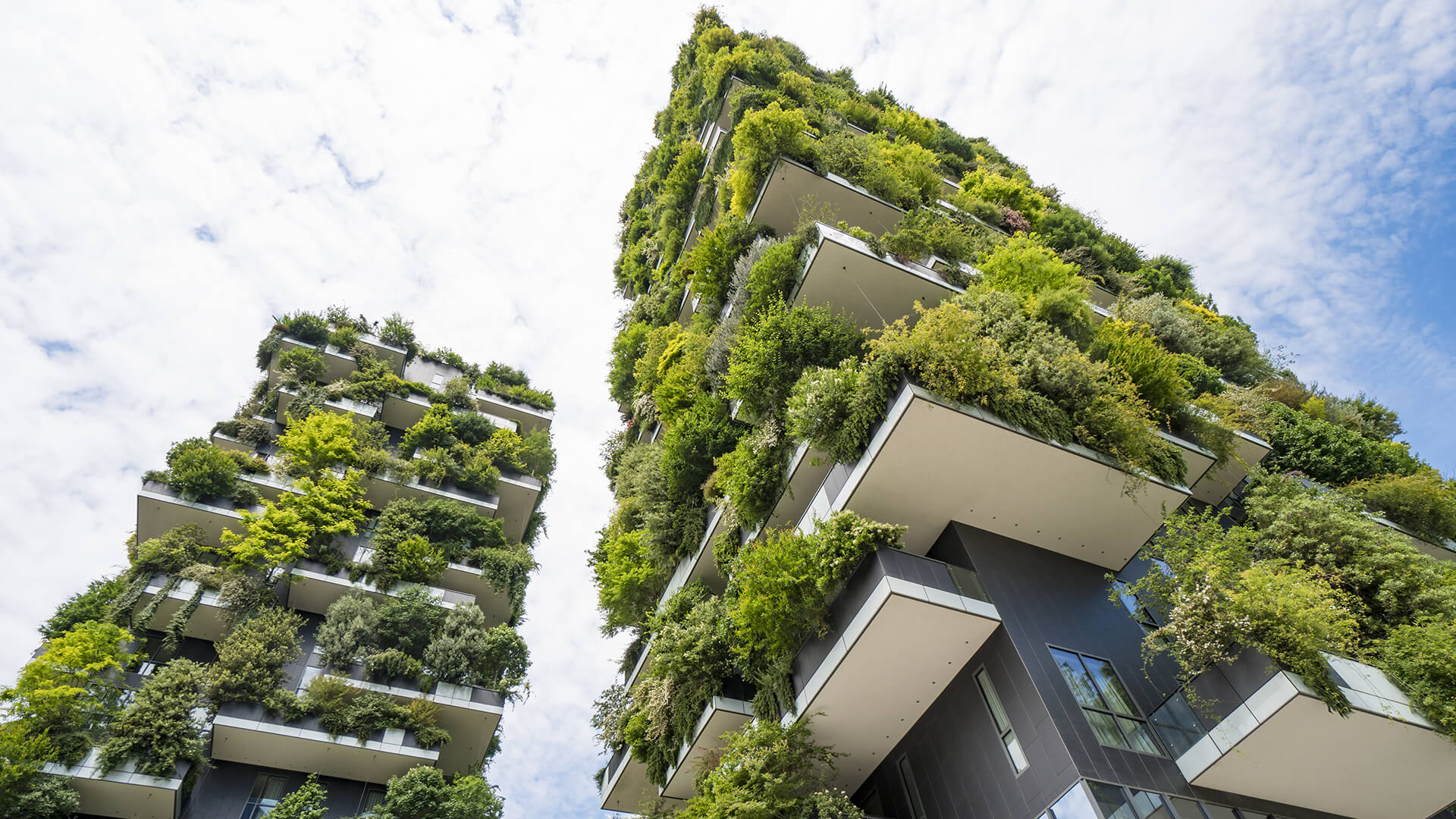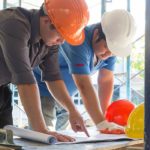The Future of Buildings: What’s Next?

As COVID-19 continues to shape our everyday lives, it can be hard to picture a future past this. How will we recover as a society after a full year of being distant from one another? And specifically, in terms of architecture, how will COVID-19 affect the future of architecture and design? Will the trend of socially distanced design stay strong or will we shift post-pandemic into a more collaborative and close-knitted approach?
CONSTRUCTION
Over the last two decades, the construction industry has faced dramatic changes. Technology continues to be produced at an alarming rate in all facets of the trade. Not only is compost being used for building materials, but the attitude shift towards green infrastructure and energy efficiency has allowed different practices to come to popularity.
During this pandemic, the industry has suffered, with construction sites in many states being shut down for large periods of time. Most sites have started opening by now as safety practices expand and vaccinations are released, but the downtime costs thousands for companies. Studies say that economic activity is expected to return to 2019 levels by 2023 at the earliest. In the short term, contractors are building inventory and securing critical materials for the future (a task they are unable to do during normal conditions). For the long term, there are signs that point to an increase in off-site construction. Being able to build projects in a controlled environment can be critical during a pandemic where safety concerns are at an all-time high. Not only does off-site construction have quality and speed benefits, but site managers are able to control any infections that enter the area.
ARCHITECTURE AND DESIGN
Every architect dream of designing the next great building. One that will last for hundreds of years and will become a testament to human innovation throughout all of history. As we shift our priorities moving forward, humanity has opened to the ideas of different ways of thinking, especially in design. Organizations in the industry have started to shift to remote ways of working. Designers and engineers are relying even more heavily on digital collaboration tools such as building information modeling (BIM). This system uses 4D and 5D simulations to help plan projects and optimize schedules. The increase in technology opens doors to a multitude of unique architectural designs, both in the real world and in virtual reality. Using a combination of computer graphics, wireless tracking technology, headsets, etc. architects can create entire cities all in the world of 3D virtual design.
Another possible future is the idea of smart cities. Imagine an entire city being closely monitored by computers, allowing small menial tasks to be completed in a matter of minutes. Everything from streetlights to trash cans, to road conditions, all able to be supervised to maximize productivity. To better utilize our resources will also allow us to lower our energy consumption, creating a greener society.
 Sustainability is a huge trend that we will see in the upcoming years. As environmental concerns increase, our society will take the appropriate acts to help fix the issues developing from climate change. It is important to live economically with our resources so that we are not harming future generations by overusing them. To help reduce waste, government entities may introduce bills to ensure that companies are not taking advantage of materials with money. Solutions to this may be alternate methods in construction, design with less energy consumption and greener practices in mind, building ‘up’ instead of spreading out across miles of land, etc.
Sustainability is a huge trend that we will see in the upcoming years. As environmental concerns increase, our society will take the appropriate acts to help fix the issues developing from climate change. It is important to live economically with our resources so that we are not harming future generations by overusing them. To help reduce waste, government entities may introduce bills to ensure that companies are not taking advantage of materials with money. Solutions to this may be alternate methods in construction, design with less energy consumption and greener practices in mind, building ‘up’ instead of spreading out across miles of land, etc.
No matter the solution, it is guaranteed that humanity will invent multiple innovative ideas that will help us transition into the next phase of our society. Architecture allows us to create legacies for generations to come and as we continue to face multiple problems that climate change evokes, we will keep the faces of our future in mind as we build these developments.
If you need any help building the future, please contact Permit Advisors at (310) 275-7774 and discuss with one of our project managers the best approach to getting you a permit fast.




